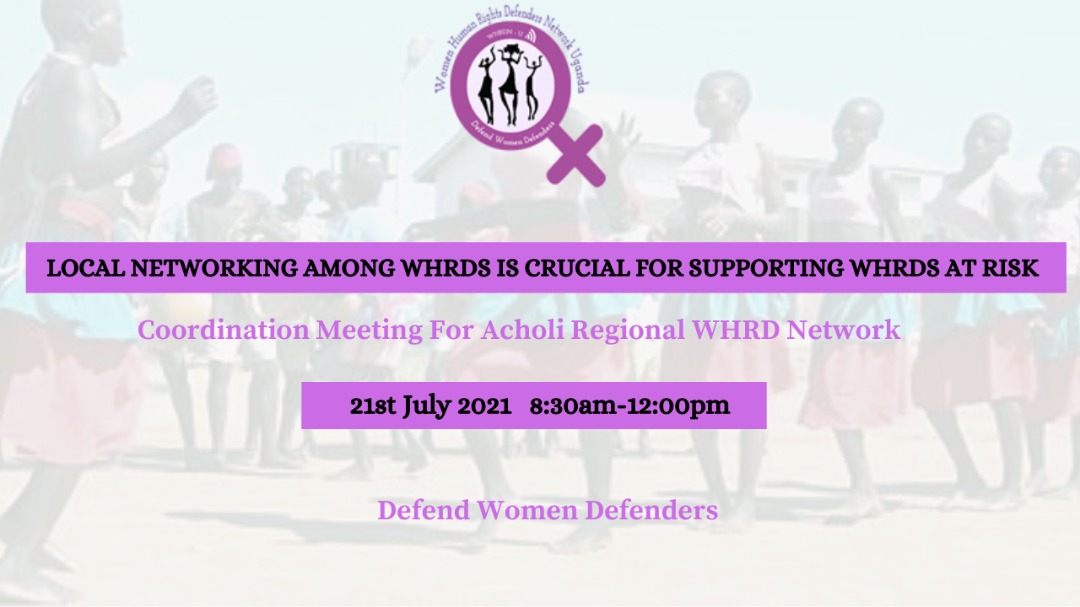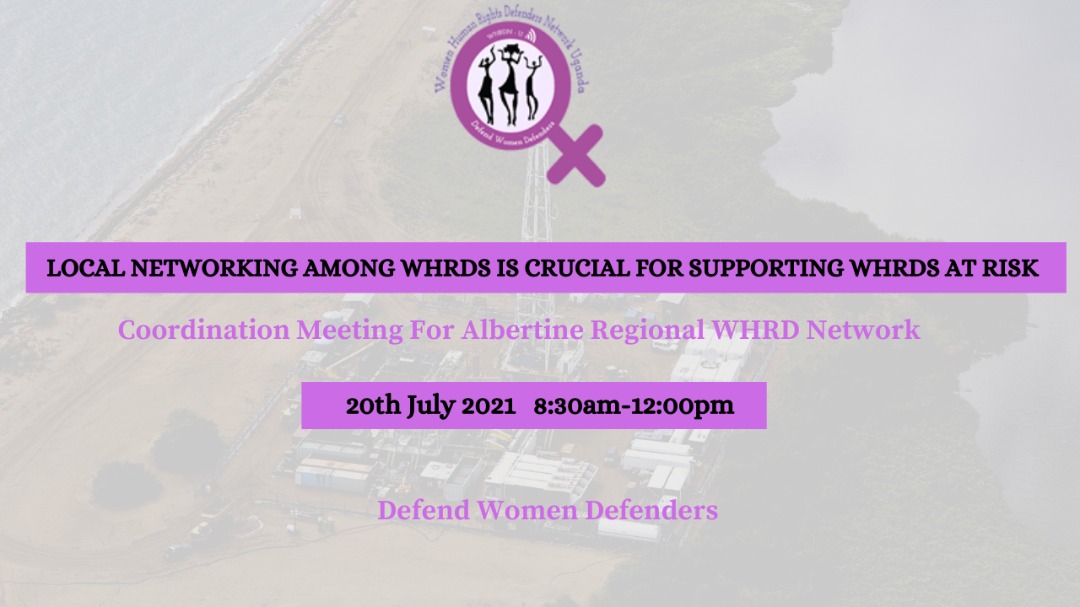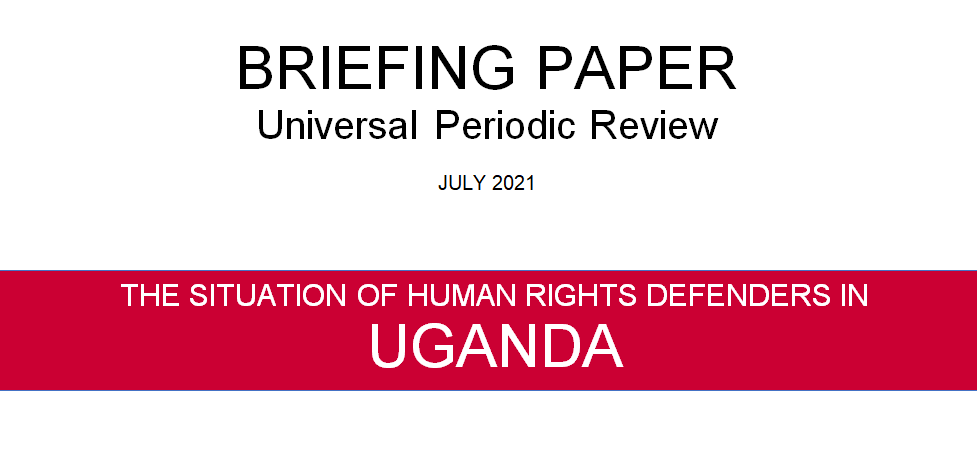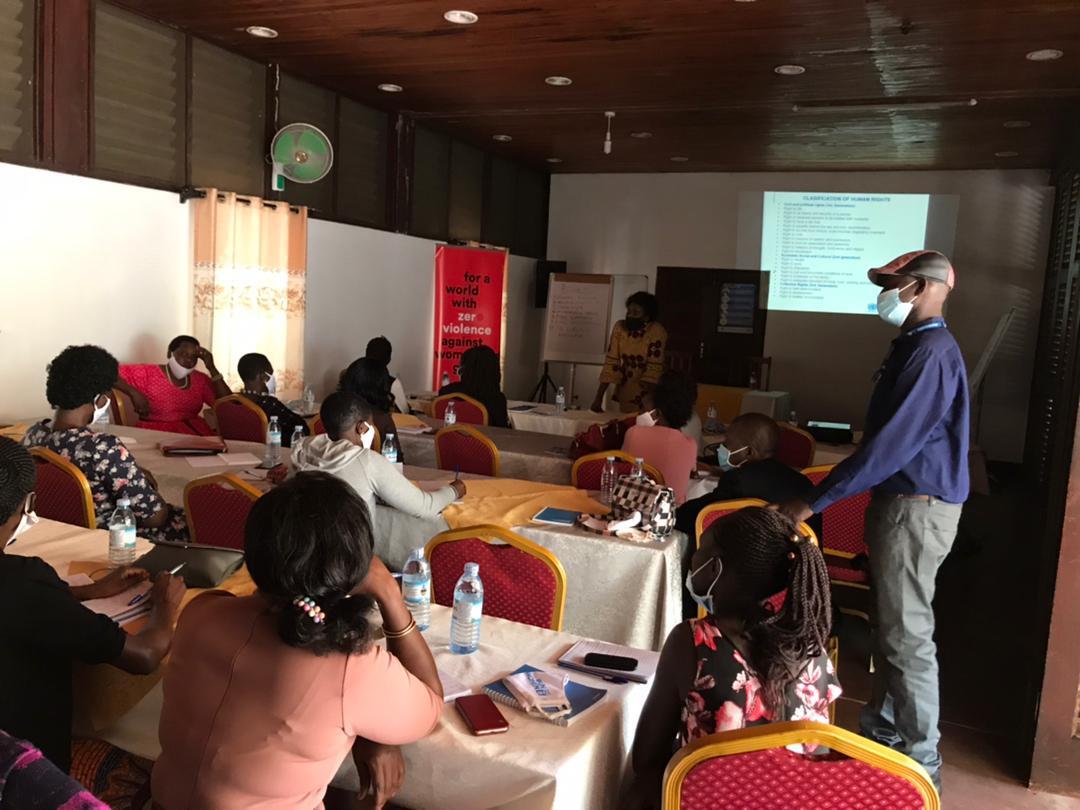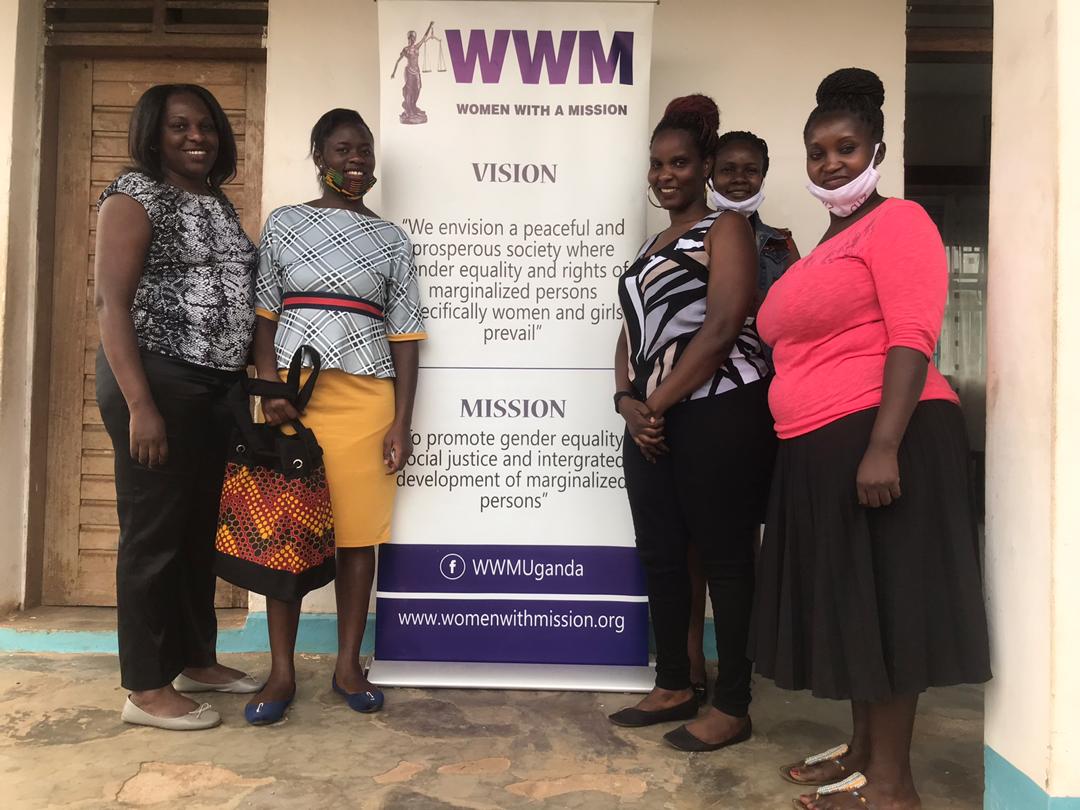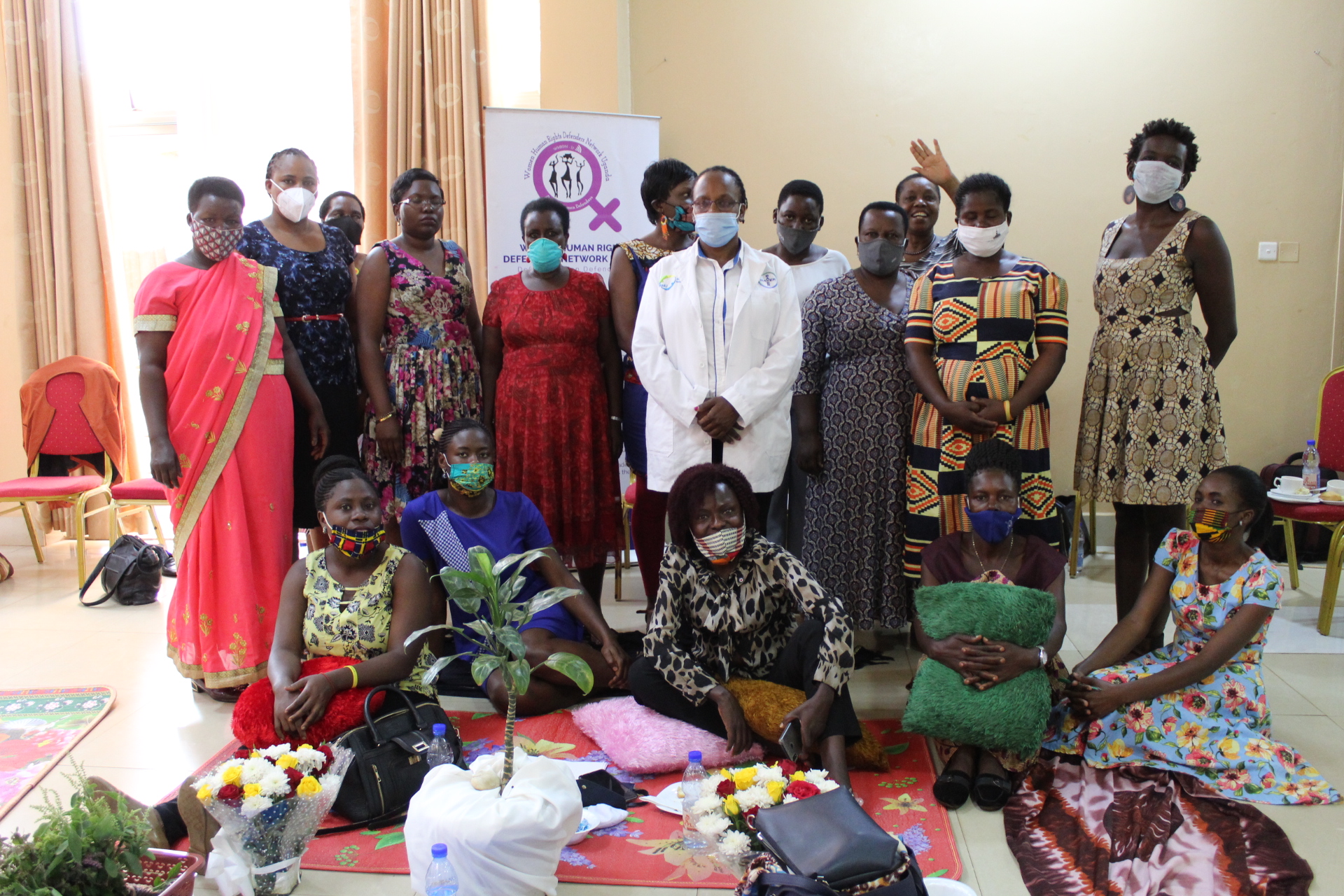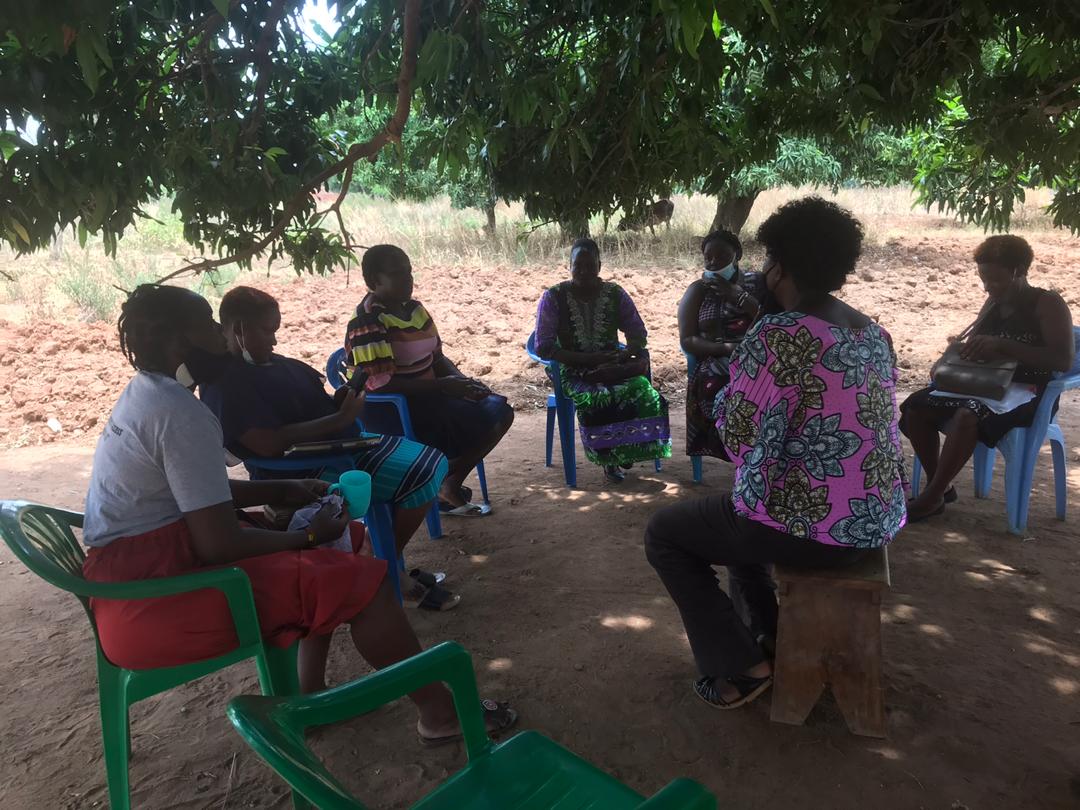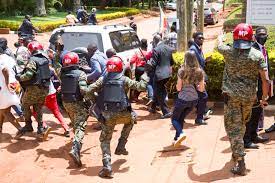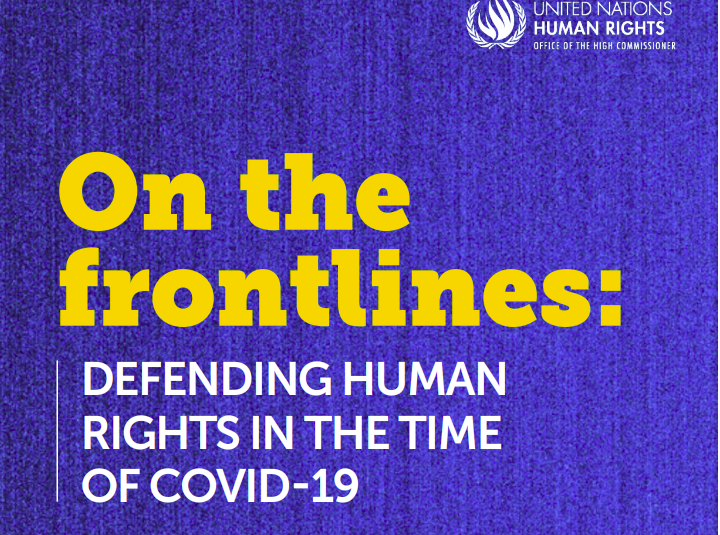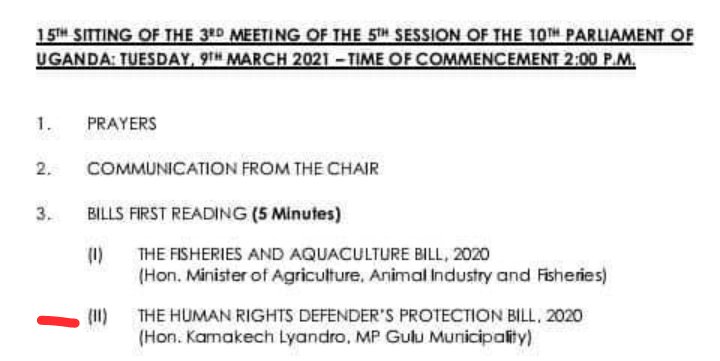Over eight WHRDs from Gulu, Kitgum, Omoro and Pader districts, participated in a virtual meeting for the Acholi WHRD regional network. The meeting on 21st July 2021 from 8:30am to 12pm was under theme “Local Networking among WHRDs is crucial for supporting WHRDs at risk”. The women defenders gathered in their physical locations and joined the meeting online.
Speaking to the participants, Ms. Brenda Kugonza of Women Human Rights Defenders Network Uganda (WHRDNU) thanked them for the work of defending rights. She informed members how despite the COVID-19 crisis, they continued to fight against child marriages, GBV/FGM, widow inheritance, land grabbing and defending rights of LGBTQ persons and sex workers.
Ms. Brenda Kugonza also told members that reports received at secretariat from WHRDs in the region reveal that WHRDs continue to suffer from smear campaigns, eviction from their communities, being accused of promoting immorality and being assaulted physically on several occasions. That also lack of recognition of their human rights work since in their communities’ women activists are perceived as bad women, not being good wives, failure to attend to issues in the private sphere (their homes).
Participants also acknowledged the existence of social and traditional norms in the region that have posed grave obstacles for women defenders since it is unheard of for a woman to actively participate in public spaces. For instance Christine Achan from Gulu district was rejected by her community and forced to relocate. ‘’ I have been beaten on several occasions and recently I was being evicted from the house I was in and WHRDNU came in and supported me to relocate to another place, she told members. ‘’Threatening calls and messages, exposing nude pictures are the experiences we go through in handling our roles as Human rights defenders and sometimes it’s discouraging,’’ shared Agenorwot Fiona from Gulu district.
In the plenary discussions, participants discussed how to improve coordination of the regional network:
- “To improve on coordination for effective reporting, we need to know contacts of fellow defenders and know the regional and districts focal persons,’’ submitted Ataro Juliet from Kitgum district. This would enable a woman defender at risk to reach out for support from the local network thus defending her from her attackers.
- Effective coordination within the region promotes positive advocacy. It then leads to having and growing a strong movement of women of all walks of life coming out to defend rights of everyone. More solutions like having regular dialogues, check in meetings and practicing self-care were recommended by members to build a local support system for WHRDs at risk.
- “I think as a regional network we will respond quick to women defenders in danger.” Teddy Ayo of Acholi
- “Coordination means to share contacts so that WHRDs can communicate to each other in the region.” Aloyo Teopista of Gulu district.

